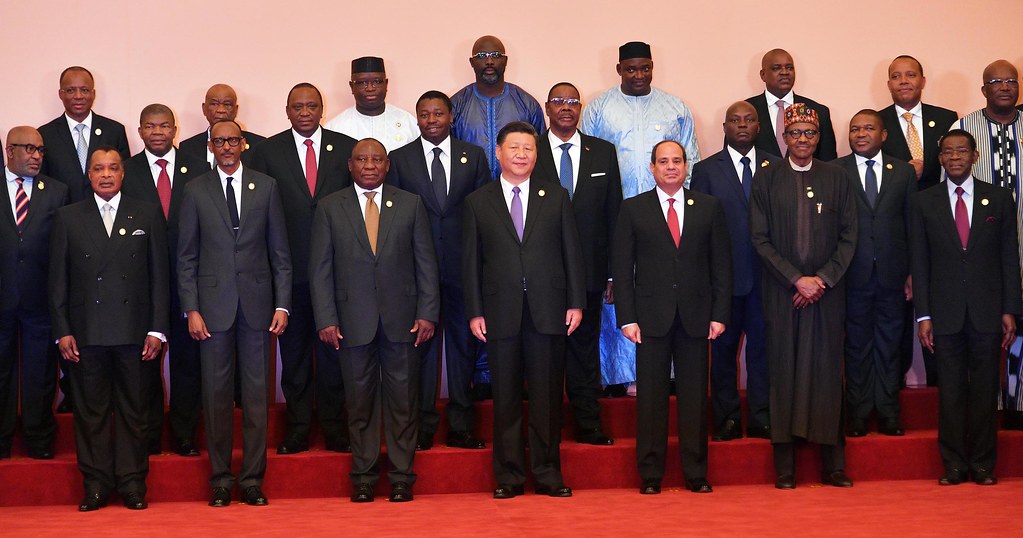A new paper by Tanner Larkin

International human rights law is often associated with the progressive expansion of justice and freedom. But today that link cannot be taken for granted. As I discuss in my forthcoming Note in the Columbia Law Review, the People’s Republic of China (PRC) is attempting to transform human rights into an instrument of 21st century global authoritarianism. To that end, the PRC is undertaking efforts at the regional, national, and sub-national levels to socialize other actors into its preferred human rights norms through visits and exchanges, academic conferences, multilateral fora, and other means.
The PRC has long possessed a distinctive human rights vision. It recognizes the validity of human rights as a concept, but stresses an absolutist view of sovereignty according to which states are entitled to choose their human rights practices without interference; stability and development are pre-conditions for promoting human rights; and human rights are centered on the state rather than the individual. This doctrine is thus highly conducive to authoritarian rule. That the PRC holds such views on human rights is not new. What is new, especially since Xi Jinping’s ascent to power in 2012, is China’s revisionist posture in promoting its vision across the globe and in treating its conception of human rights as an alternative human rights framework, superior to the liberal status quo. This shift is powered by China’s dual aims of augmenting its soft power (and thus geopolitical influence) and neutralizing the perceived threat of liberal human rights norms to the survival of the Chinese Communist Party regime.
China’s international human rights strategy can be thought of as “normfare,” a neologism that refers to the strategic promotion of favored interpretations of international norms. Its normfare in the human rights field is illuminated by applying Harold Koh’s transnational legal process model for how international norms develop and take root. Per Koh’s model, this occurs in three stages. First, the norm entrepreneur provokes an interaction or series of interactions with other actors. Second, the interaction forces an interpretation or enunciation of a relevant international norm. Third, the transnational actor potentially succeeds in causing the other parties to internalize the new interpretation of the norm into its own internal normative system. Successfully internalized norms may ultimately determine state behavior.
China’s human rights engagement with Africa demonstrates at least a de facto strategy of normfare to diffuse favored norms in a manner that maps onto Koh’s transnational legal process model. In the interaction phase, the PRC creates opportunities for transnational actors to engage with Chinese counterparts and learn about the PRC’s human rights vision, including through new fora such as the Forum on China-Africa Cooperation and the South-South Human Rights Forum, as well as by visits and exchanges involving African political parties, experts, lawyers, and other actors.
These interactions lead to the interpretation of norms in a manner favored by China, thus legitimizing and building consensus for China’s norms. These processes of interaction and interpretation are fueling internalization. This involves (1) social internalization, suggested by the embrace of PRC-style human rights norms by some prominent African academics; (2) political internalization, indicated by the rhetoric of certain African leaders; and (3) legal internalization, evidenced by African states such as Tanzania, Nigeria, and Zimbabwe adopting PRC-style internet-regulation statutes.
The PRC’s human rights normfare may contribute to the construction of an alternative, authoritarian international law and the furtherance of an illiberal, China-dominated global order. To avoid these outcomes, actors—above all, the United States—should push back to blunt the effects of the PRC’s normfare and rebuild a more resilient liberal human rights regime, including by implementing counter-normfare.
China’s human rights normfare poses a grave threat to the international human rights system. By fashioning an illiberal, authoritarian “human rights” doctrine, the PRC debases the coinage of human rights, supplying a currency that will prop up authoritarian regimes and undermine human rights defenders. Now is the time for action to preserve the integrity of human rights as a check on arbitrary state power and a guarantor of individual liberty.
Tanner Larkin’s paper is forthcoming with the Columbia Law Review and a draft is available here. Tanner Larkin is a second-year J.D. student at Columbia Law School, where he is a Hamilton Fellow and a James Kent Scholar. He is also a Senior Editor of the Columbia Law Review and a board member of the Columbia Society for International Law. Tanner graduated summa cum laude and Phi Beta Kappa from Georgetown University’s School of Foreign Service in 2019. He can be reached at larkin.tanner@columbia.edu or through LinkedIn.
